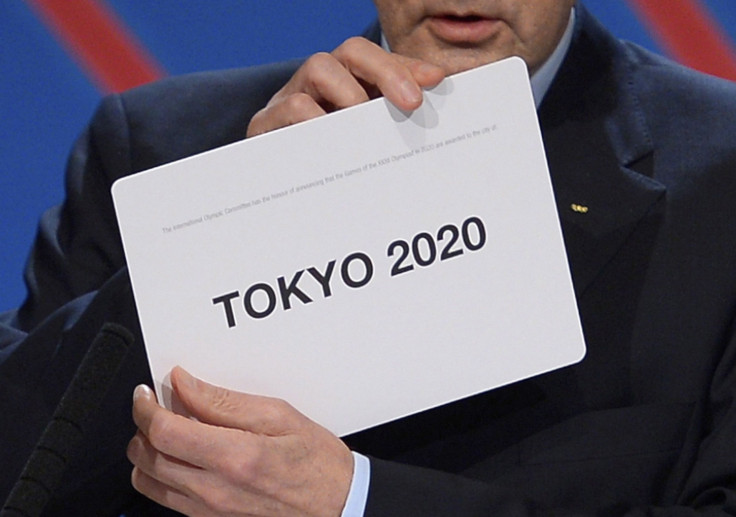Here's Why South Korea Wants Japan To Ban The Rising Sun Flag From Tokyo Olympics

A South Korean committee on sports wants the Japanese “Rising Sun” flag to be banned from next year’s Summer Olympic Games in Tokyo because it represents a symbol of "imperialism and militarism” to South Korea and evokes memories of Japanese atrocities during the first half of the 20th century and World War 2.
The Japanese organizers have refused any ban on the flag.
The official national flag of Japan is a red circle on a white background and symbolizes Japan as the “Land of the Rising Sun.” The flag that the South Koreans and China object to has a red circle at its center with 16 red stripes or rays extending to the flag’s edges from the center circle. Historically, it was used by the Imperial Japanese Army and Navy and is still commonly seen in Japan with variations of the design used in commercial products and advertising.
Tokyo 2020 organizers said in a statement that, "The flag itself is not considered to be a political statement, so it is not viewed as a prohibited item.” An Min-suk, the lead person for the South Korean parliamentary committee for sports, blasted the decision in press conference Tuesday when he said, "A flag symbolizing war is not suitable for peaceful Olympic Games. The Rising Sun flag is akin to a symbol of the devil to Asians and Koreans, just like how the Swastika is a symbol of Nazis…”
The flag issue is just the latest of a series of spats between the two U.S. allies involving trade on top of the ill feelings that stem from events over 70 years ago. In July, Tokyo placed controls on exports to South Korea of three chemical materials which are used to make computer chips and other key products. A month later they officially removed South Korea from its list of preferred trading partners.
This move caused South Korea's Ministry of Foreign Affairs to release a statement calling the measure "unjust" and that it was being treated as a "hostile nation.” They went on to remove Japan from a list of trusted trading partners and announced it was ending its 2016 military sharing agreement with Japan.
Elderly Koreans still have vivid memories of the WW 2 horrors where they were subjugated into forced labor, subjected to torture and executions and where many women were forced to become sex slaves or “comfort women” for Japanese soldiers.
The Japanese paid a heavy price for their behavior, but no amount of reparations or apologies can fully atone for their acts. Perhaps the small gesture of not displaying the Rising Sun flag at the 2020 Tokyo Olympics can be a small step to improve relations between the two countries.
© Copyright IBTimes 2025. All rights reserved.





















